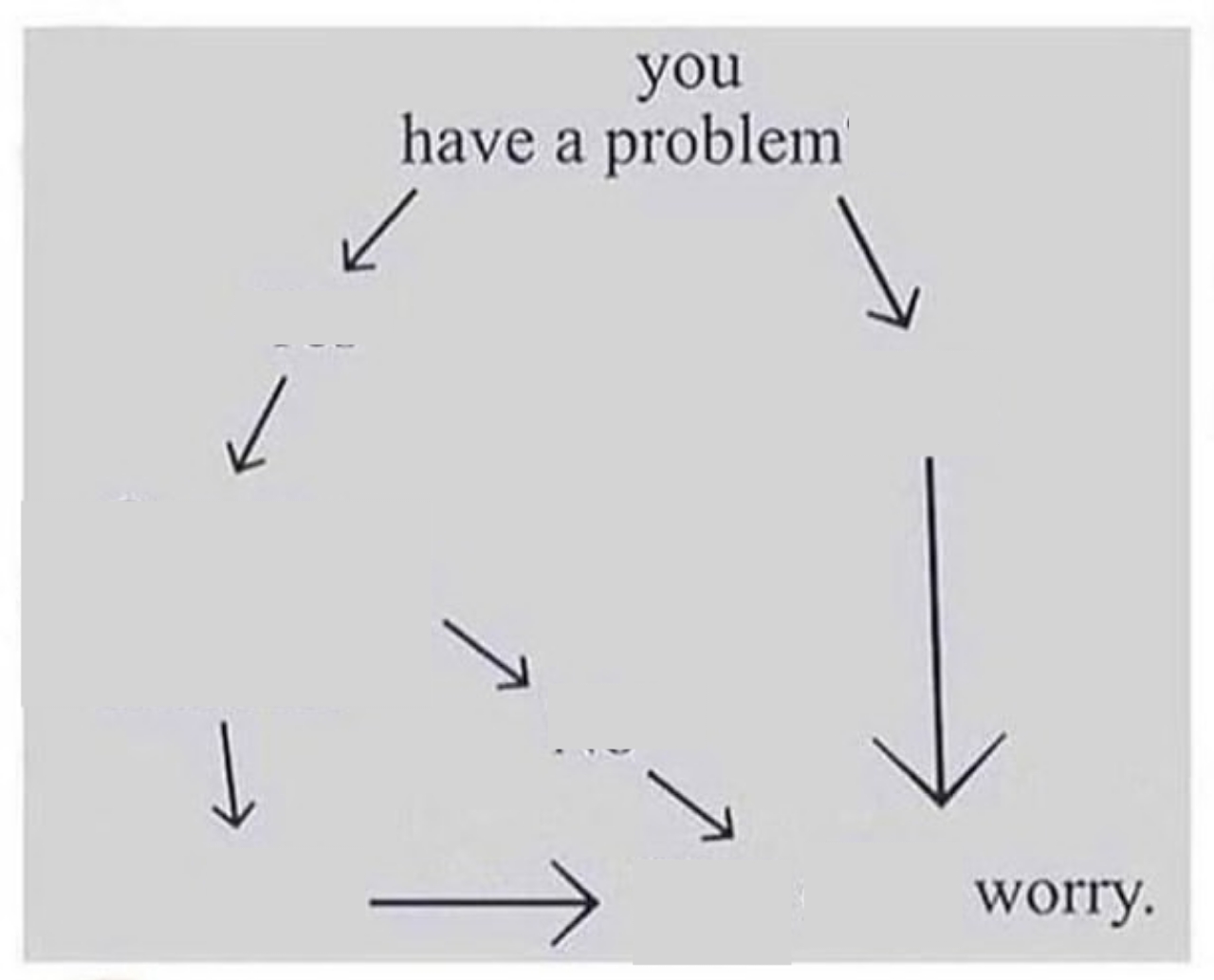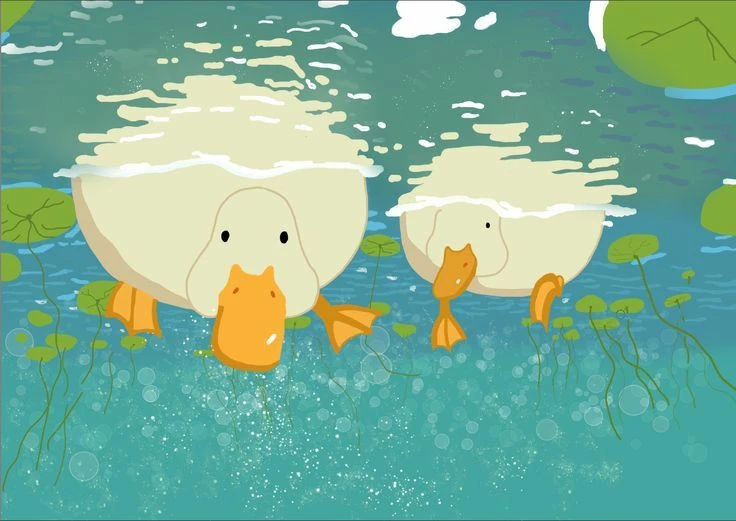Do you have a problem?
Yes
Can you do something about it?
I DONT KNOW
P A N I K
I’ve gotten decent at this, but it has taken years of practicing the skill, plus trying various medications. Not to mention a couple of job losses during covid.
The fun combo of adhd and anxiety made this a necessity if I wanted to generally enjoy life.
The ability to not worry about shit sounds simple, but it is much easier said than done. It’s like a muscle that you have to exercise and build up.
Here are the elevator pitched for three topics that helped me:
Mediation/mindfulness: I listened to some Buddhist talks, and liked the way some of them explained focusing on your breath and stepping back to observe your own emotions without embracing those feelings at the time. And you have compassion for yourself, and not judge things negatively. Just observe what is. It’s something you can practice at any time, and the more you do it, the more you can stay in that state while doing other things. There is also a big component of controlling your desires, because those are often a big component of suffering.
Philosophy: around the same time, I was reading stoic philosophy. Marcus Aurelius is the big name there. The bottom line is that regardless of what happens to you, the way that you internally process it and react to it is what really determines how it affects your life & mental state. So with practice, time, and sometimes medication, you are more and more in control of your mental state and how things affect you.
Acceptance and commitment therapy (ACT): The world around you is what it is, so instead of worrying about things you can’t control, you accept the true state of things and then filter that through your personal values to decide how to act.
Some common themes here, to be sure. Along with being able to better control your thoughts and emotions, it’s about finding contentment and tranquility in whatever your life looks like. Not because everything is great, but because your mental state is much more important than reacting how you “should” react.
I just wanted to say I appreciate the way you wrote this and didn’t hide the fact it’s taken you a lot of work, and is an ongoing practice. I see these types of things get suggested far too often without that context. “Just meditate” really takes away from how much discipline over years or a lifetime it takes. There’s nothing easy or quick about it, and it takes a lot of courage to keep it up.
Why don’t you simply turn off the unwanted emotion??
That’s how emotions work, right? Right, that’s how they work.
This is how I think, but my girlfriend doesn’t, so sometimes it’s really frustrating. I think she is addicted to worrying.
My brain:
Do you have a problem? -> No -> FREAK OUT!
Do you have a problem? -> No -> Create a problem
deleted by creator
My problem is that the "Can you do something about it?" is always unclear, I go back and forth until it consumes my thoughts.
I try to tell myself that I can’t do anything about it to calm down, then I find a solution and I can do something about it
It’s ultimately easy to tell apart because the things in our control have vastly different qualities from those which are not. Quoth Epictetus:
Some things are in our control and others not. Things in our control are opinion, pursuit, desire, aversion, and, in a word, whatever are our own actions. Things not in our control are body, property, reputation, command, and, in one word, whatever are not our own actions.
The things in our control are by nature free, unrestrained, unhindered; but those not in our control are weak, slavish, restrained, belonging to others. Remember, then, that if you suppose that things which are slavish by nature are also free, and that what belongs to others is your own, then you will be hindered. You will lament, you will be disturbed, and you will find fault both with gods and men. But if you suppose that only to be your own which is your own, and what belongs to others such as it really is, then no one will ever compel you or restrain you. Further, you will find fault with no one or accuse no one. You will do nothing against your will. No one will hurt you, you will have no enemies, and you not be harmed.
Aiming therefore at such great things, remember that you must not allow yourself to be carried, even with a slight tendency, towards the attainment of lesser things. Instead, you must entirely quit some things and for the present postpone the rest. But if you would both have these great things, along with power and riches, then you will not gain even the latter, because you aim at the former too: but you will absolutely fail of the former, by which alone happiness and freedom are achieved.
Work, therefore to be able to say to every harsh appearance, “You are but an appearance, and not absolutely the thing you appear to be.” And then examine it by those rules which you have, and first, and chiefly, by this: whether it concerns the things which are in our own control, or those which are not; and, if it concerns anything not in our control, be prepared to say that it is nothing to you.
Now the list of things under our control might seem small – but it’s actually real control. You can’t control that an arrow you shoot will hit the target, a gust of wind may take it away and you’re not controlling the wind. Have the opinion (under your control) that you shall hit, and that gust of wind comes, and when you miss you’ll be wretched, so don’t have that opinion. But still do take that shot unless it’s impossible, in which case find a possible one.
This is how to drive other people, especially coworkers, insane. That’s all that is.
Do you have a problem? Yes, I don’t have enough money for bills + food.
Can you do something about it? No, I’m on a fixed income.
Then don’t worry. Uh…
Well, worrying about it certainly won’t do anything to improve the situation
People usually worry because “Can you do something about it -> Yes” involves something unpleasant or work intensive stuff with strict time limit.
This is mine.

This cannot reasonably be how mentally healthy people react though, because this would seem to suggest that the healthy thing to do is to never worry about anything at all, in which case, what utility would have led to that emotion evolving in the first place?
You worry about uncertainty. There is no uncertainty in this flow chart. Worrying about things that are defined and known is not healthy, but that’s not to say that stable people never worry about things they know the solution to or never worry even though there aren’t any real problems. The distinction really is if you’re able to make yourself stop worry or not, in a healthy way, or if worry consumes you to the point of anxiety.










